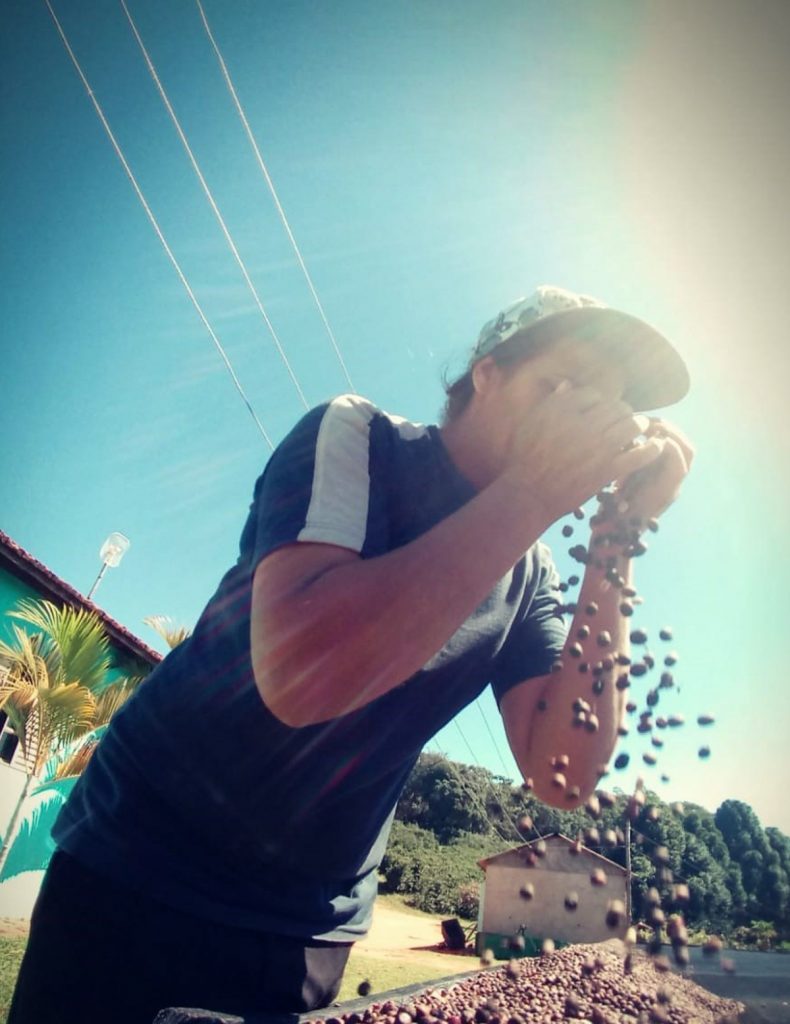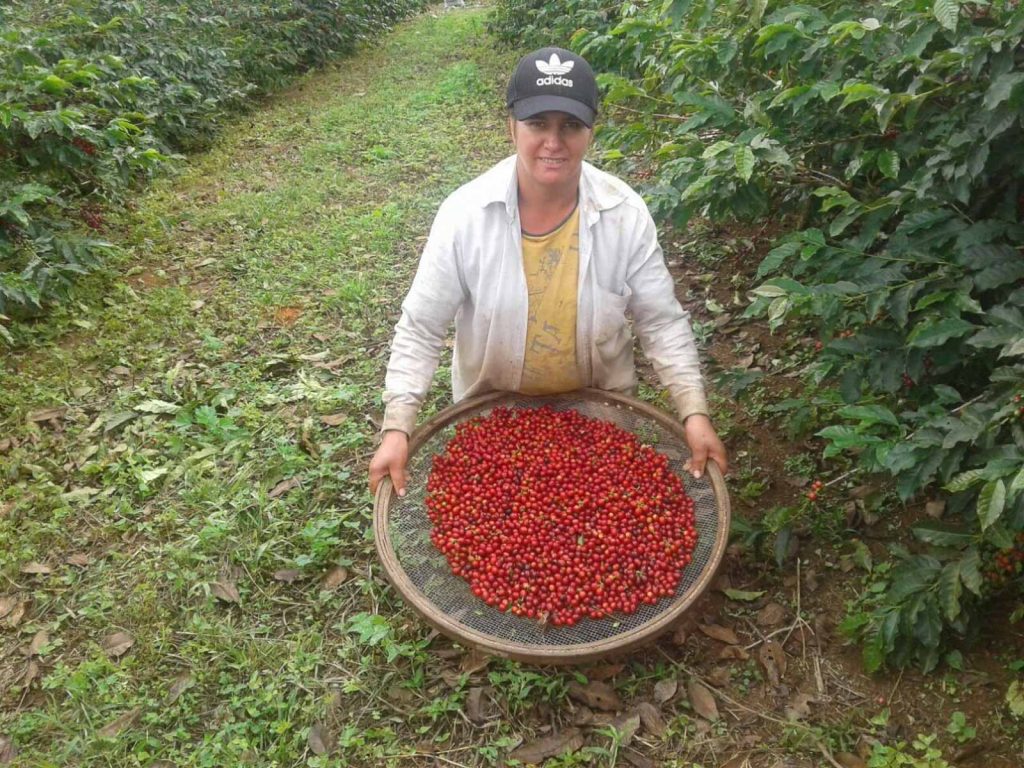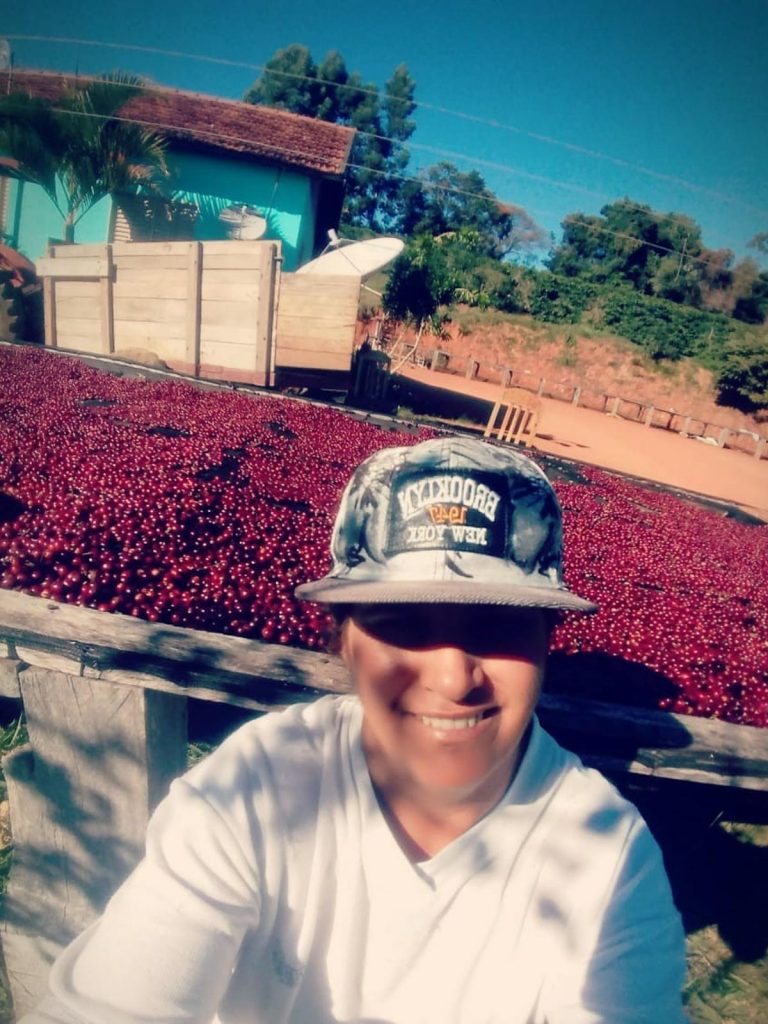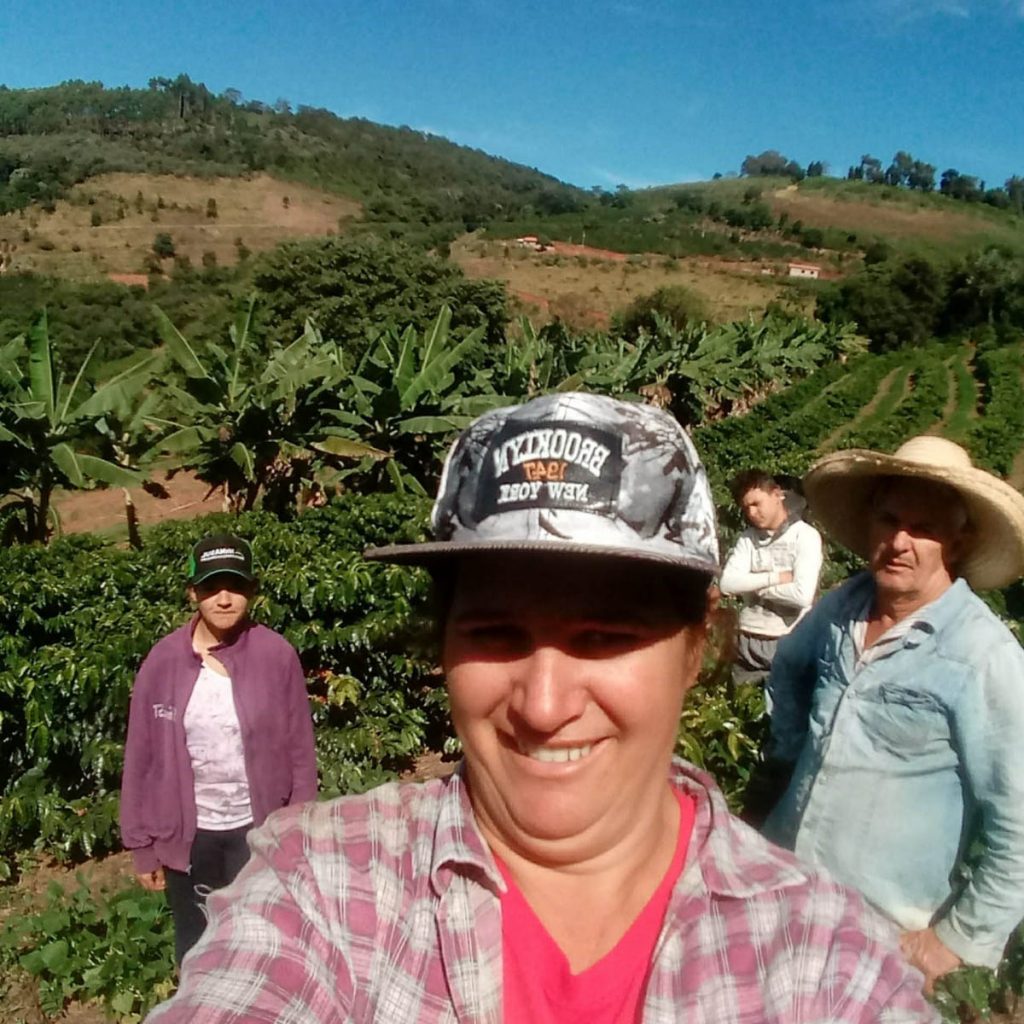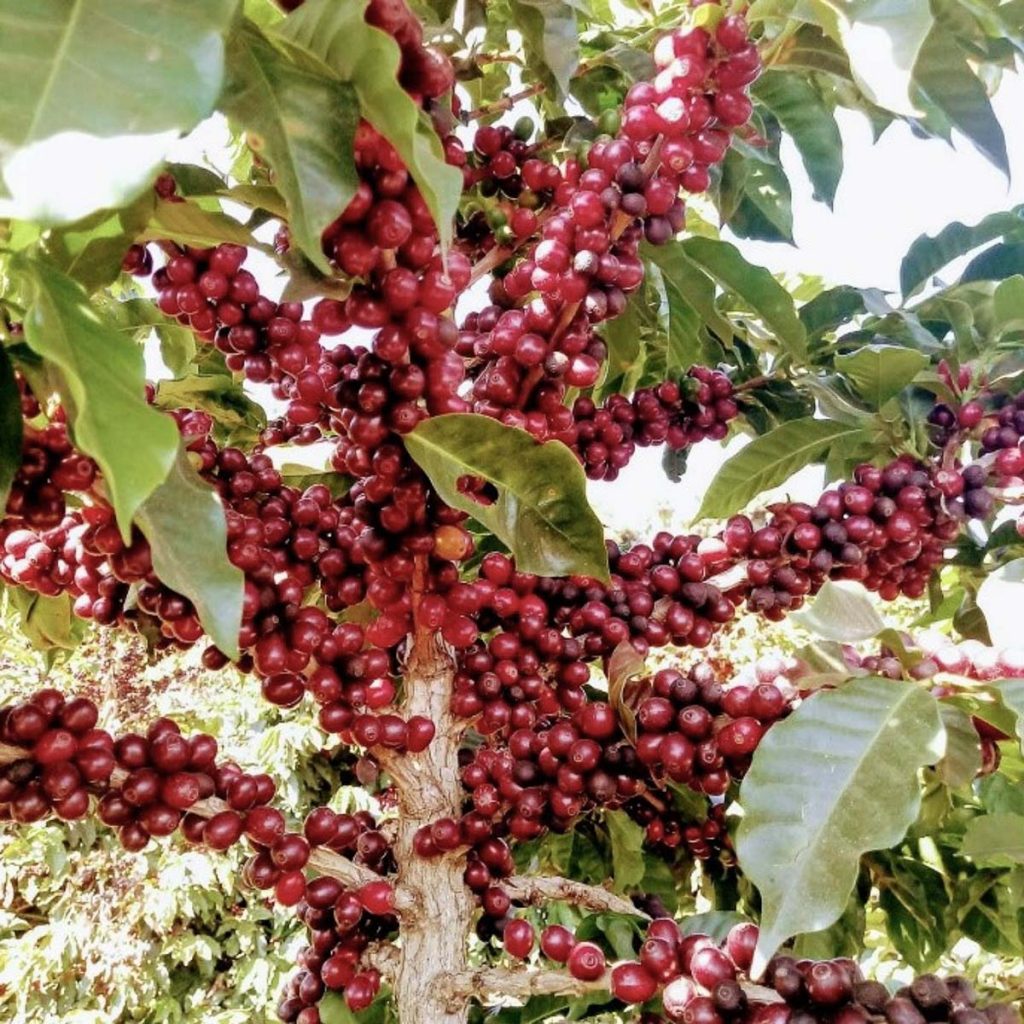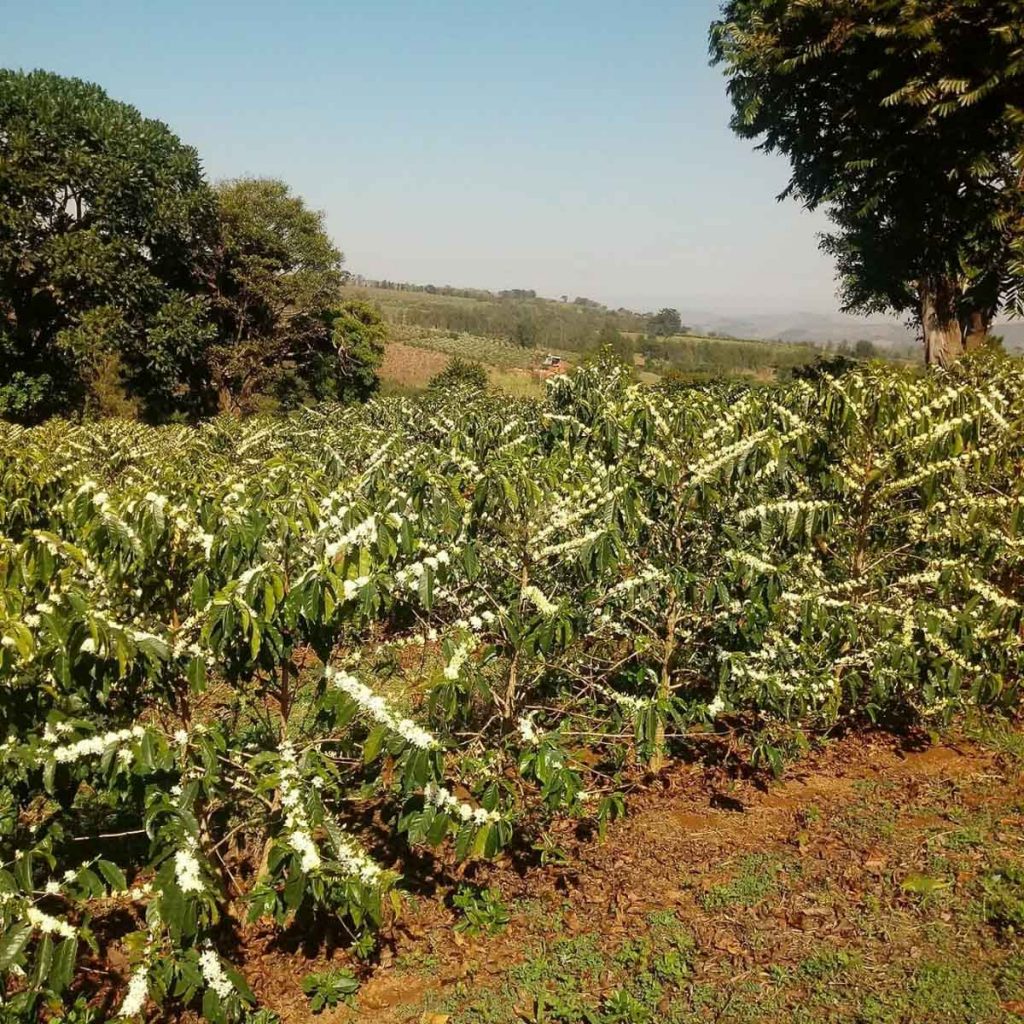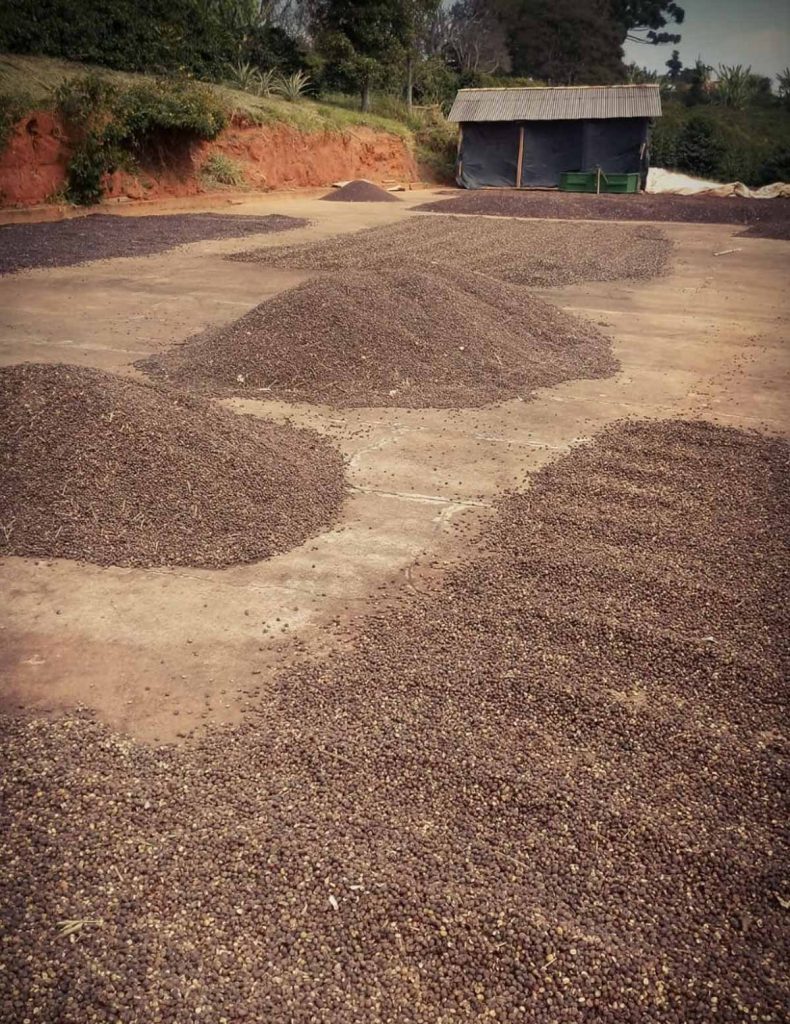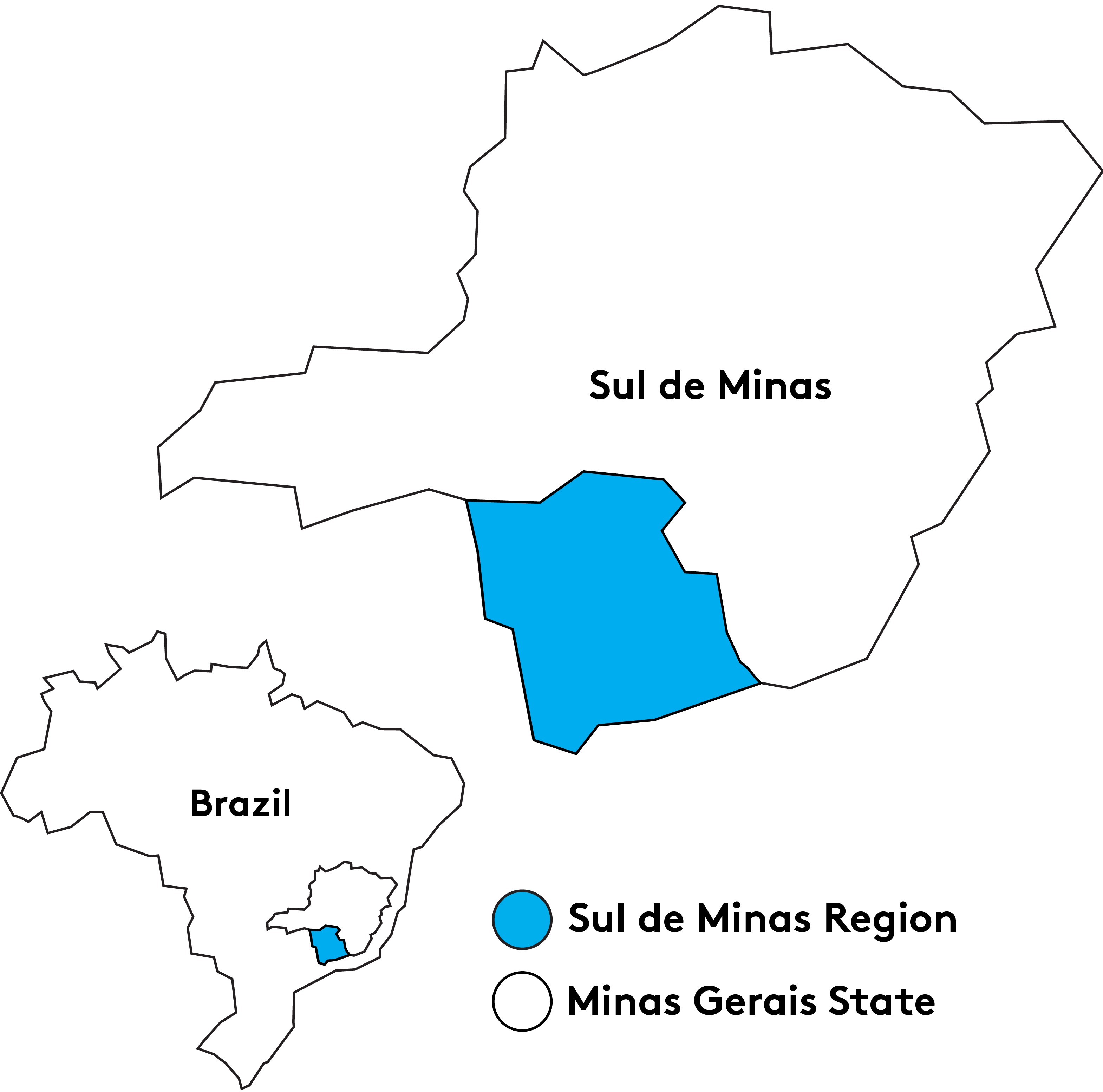Sítio Nossa Senhora Da Paz is located in the Campo Grande community of the city of Campana in the Mantiqueira de Minas coffee region of Sul de Minas. Marcia de Jesus Souza Borges grows coffee alongside her husband, Maurílio Brás Borges, who worked alongside his father since he was a child. Marcia and Maurílio entered into coffee together and are now joined by their two children, Andressa and Bruno.
Marcia’s daughter Andressa already has her own small property where she cultivates coffee; Bruno is in his adolecence but already passionate about coffee and plans to follow in the footsteps of his parents and his sister.
For Marcia, the biggest challenges are the volatile climate and cost of manual labor. The family’s primary goal is to produce high quality coffees, which motivates them to work with dedication. The methods used on the farm minimalize chemical inputs, overgrowth management, and selective harvesting. The farm has also earned Fairtrade certificication, which further supports the producer.
The farm’s total area of 6.5 hectares is planted with coffee, which yields a harvest of 230 bags per year. Marcia chose the name Sítio Nossa Senhora Da Paz for the farm out of her devotion.
